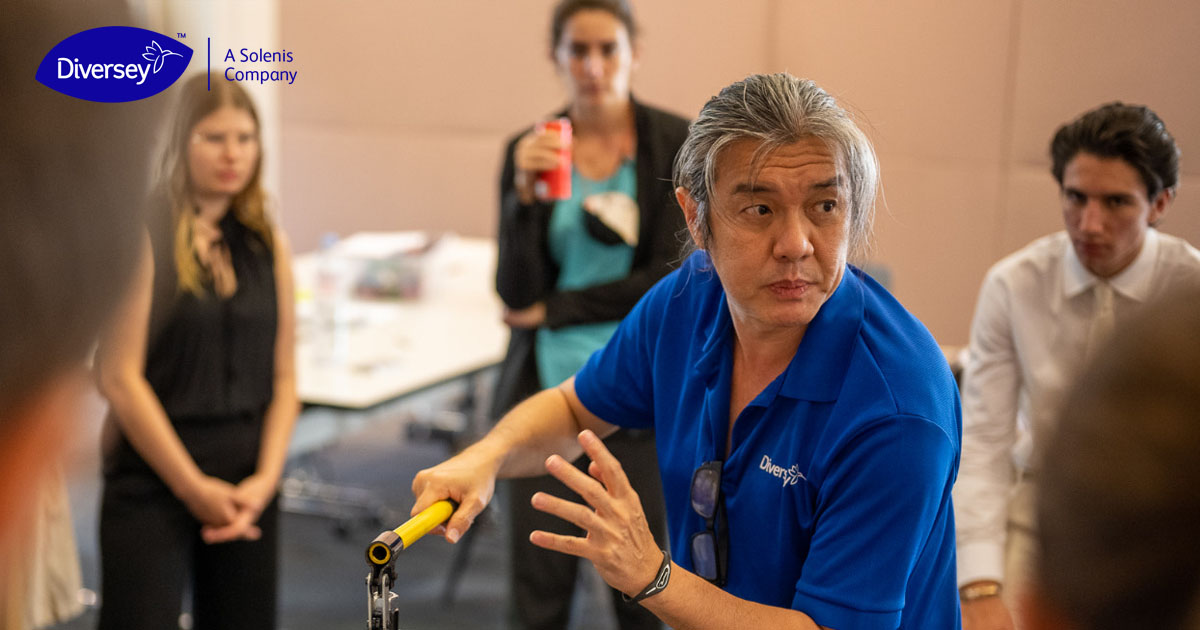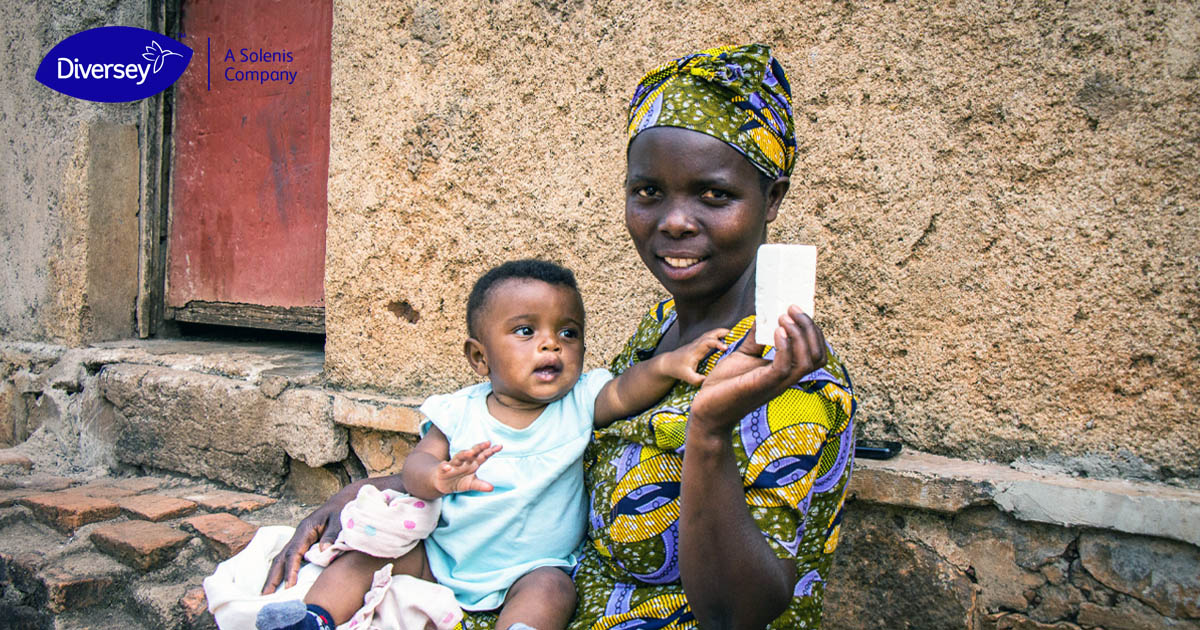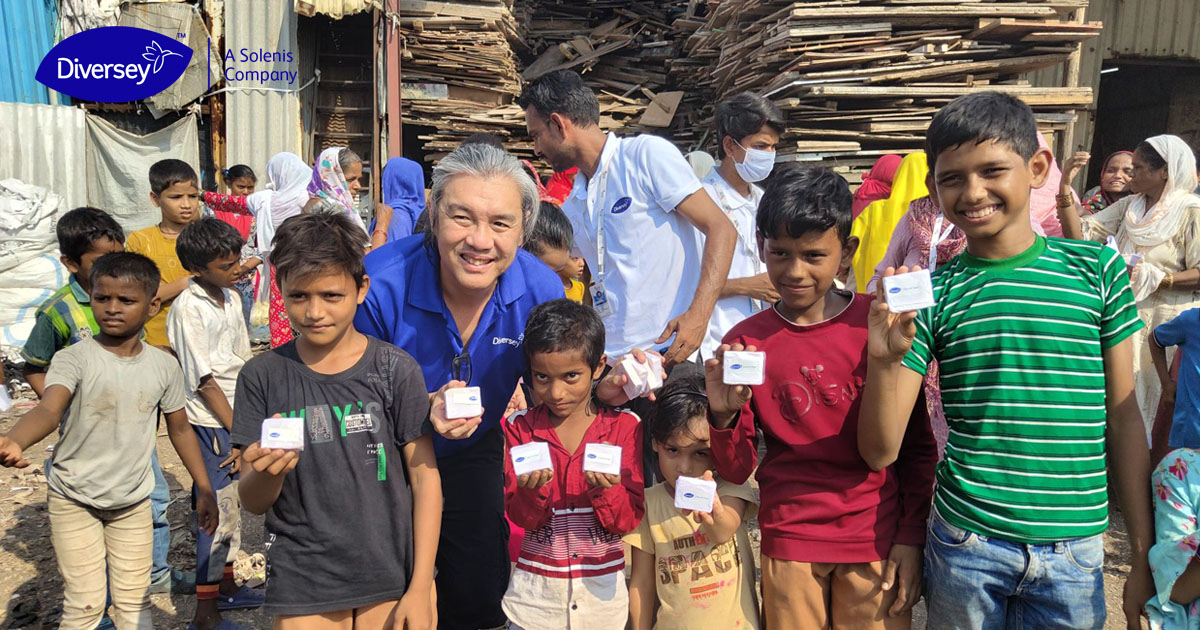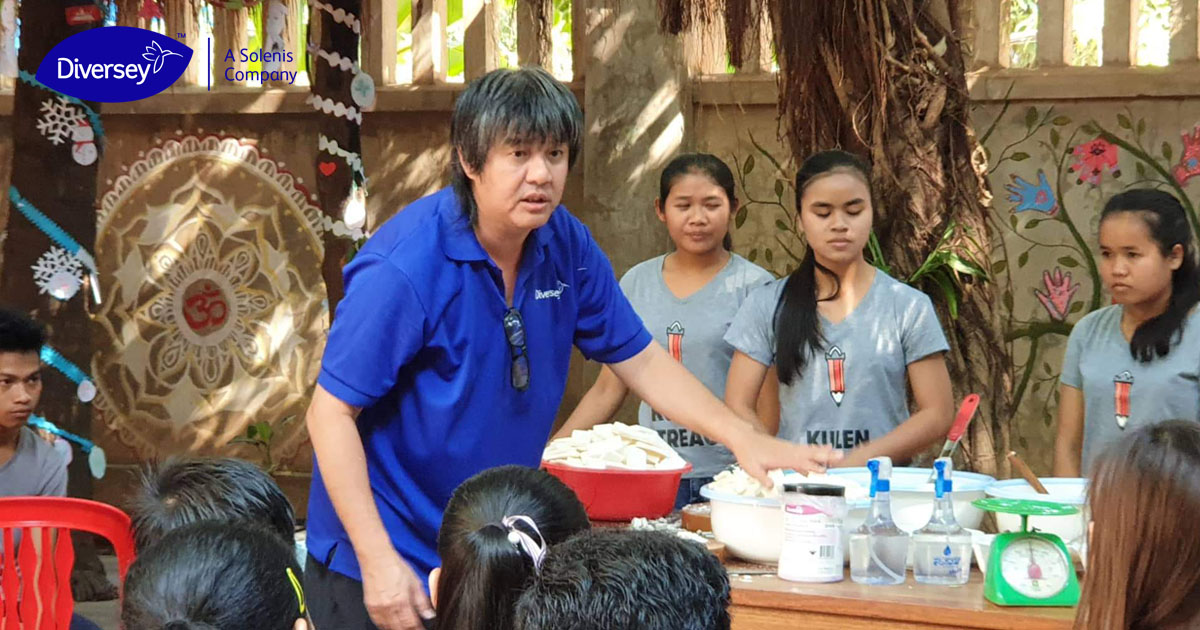Interview with Stefan Phang
10 Years of Soap For Hope™

Global Director, Sustainability and Creating Shared Value programs at Solenis.
Founder of Soap For Hope™
Can you briefly describe Soap For Hope (S4H)?
Soap For Hope (S4H) is an innovative program pioneered by Diversey to recycle used hotel guest soap and distribute them to the poor communities across major cities of the world.
The program has three goals:
- Promoting hygiene through hand-washing with soap, by providing soaps to people who lack access to soaps
- Enhancing livelihoods for the local community through recycling soap.
- Help hotels reduce waste by diverting tons of soap waste from local landfills or incinerators.

Diversey collects soap from hotels, transports it to communities, and teaches locals to recycle it using custom machines. Key beneficiaries of the program are mainly disadvantaged women who are at risk and those living around slum areas. They have limited access to basic health amenities such as soap. If they fall ill, they are unable to work. Through Soap For Hope, we are able to promote a more hygienic environment and also alleviate financial hardship by imparting a new skill to generate livelihoods.
What inspired you to launch S4H in 2013?
Globally, over 2.5 billion people lack proper sanitation, resulting in a child's death every 20 seconds. Simple hand-washing with soap is the most effective and cost-efficient method to prevent diarrheal diseases and pneumonia, even surpassing vaccination, as noted by the US' Center for Disease Control (CDC). Extreme poverty is widespread in city slums, remote villages, mountainous regions, and isolated islands, particularly affecting disadvantaged women and those who make a living scavenging and reselling trash.

These individuals struggle to access basic health necessities like soap, and falling ill means they can't work or earn. Soap For Hope addresses these challenges by creating a hygienic environment and providing a new skill that can generate livelihoods earning up to US$50 per month, compared to the typical US$10.
Empowering families with the knowledge and tools to transform discarded soap into usable bars opens doors to new opportunities. They can establish an income stream by selling these soaps to participating hotels, NGOs or other commercial entities, or Diversey. Over the years, Diversey has found that this income enables parents to afford food, medicine, and education fees, preventing them from resorting to desperate measures such as selling their children into the sex trade. In fact, Soap For Hope was conceived and launched to combat this issue of impoverished families resorting to such extremes, as detailed in the TEDx Talk below. Diversey collaborates with NGOs like the International Child Protection Network to educate families about alternatives to this abhorrent practice.
Can you share a memorable anecdote?
When I first initiated the program, my vision was to run it exclusively within the slums of Phnom Penh, Cambodia, catering to a maximum of 10 to 15 customer hotels. However, as word of our endeavor spread, and more hotels expressed their interest in participating, we expanded our reach to encompass additional cities and countries. Today, our network includes over 1500 customer hotels across 201 cities in 51 countries worldwide.
Yet, what resonates most profoundly with me are the poignant stories I've encountered while visiting our Soap For Hope communities around the globe. I've listened to countless accounts of transformed lives:
"Mothers have shared with me that they can now afford to provide chicken for their families on a weekly basis, instead of annually. They can send their children to school with proper school shoes and readily seek medical attention for their loved ones when they fall seriously ill."
What do you consider to be S4H greatest achievements?
Soap For Hope's impact is evident in poverty-stricken urban areas, but what about affluent cities like Singapore, Hong Kong, the UAE, or Australia? Some argue that Soap For Hope may not be effective in such places, citing the absence of slums or impoverished villages.

One of our most significant achievements and milestones has been proving that Soap For Hope can indeed make a difference in these prosperous cities. In such locations, there are often unseen, vulnerable populations. In Hong Kong, we've implemented S4H as an income-generating initiative with an NGO assisting women rescued from domestic abuse. In Singapore and the UAE, our focus is on supporting the large communities of foreign workers from economically disadvantaged countries. In Sydney, Australia, our Soap For Hope program serves the homeless and refugees.
The value of personal hygiene and access to soap became especially evident during the pandemic. Homeless communities were severely affected, and access to soap played a crucial role in protecting them from the virus. Here you can see an example of the program helping migrant workers in Singapore.

Have any partnerships contributed to the program's success?
The success of Soap For Hope hinges on the invaluable collaboration with our partners. Diversey shoulders all logistics expenses and supplies essential equipment, such as tools and soap-press machines, along with the necessary disinfectants for soap reprocessing. Our dedicated local employees conduct vital training for the community members.

However, our operation relies on the support of hotels, which play a pivotal role by providing us with used guest soaps. Local NGOs are equally essential; they assist in identifying at-risk families who can benefit from our program and facilitate the search for donors willing to cover the costs of soap production and distribution to these communities.
In sum, Soap For Hope stands as an exemplary embodiment of Sustainable Development Goal #17 - “Strengthen the means of implementation and revitalize the global partnership for sustainable development”.
How do you envision the future of Soap For Hope?
One trend we've observed is the shift away from traditional soap bars in hotels. Many establishments are now opting for wall-mounted liquid soap dispensers. Consequently, in the upcoming decade, there will be fewer discarded solid soap bars available for S4H initiatives.
However, our unwavering commitment to these communities remains steadfast. In light of the anticipated decline in Soap For Hope's ability to provide the same income levels, we have introduced alternative livelihood programs for these communities. Over the next decade, it's probable that the program will phase out, making room for other programs such as Linens For Life™, CoffeeBriques, and PlasticShreds to assume more prominent roles in supporting these communities.
Share a message for S4H's 10th anniversary celebration:
Soap For Hope is not a Diversey or a Hotel’s or an NGO’s program. It is a global movement shared by everyone, for the betterment of society and the environment. So Thank You to everyone who has helped make Soap For Hope a success over the past 10 years…and Happy 10th Anniversary to Soap For Hope!



